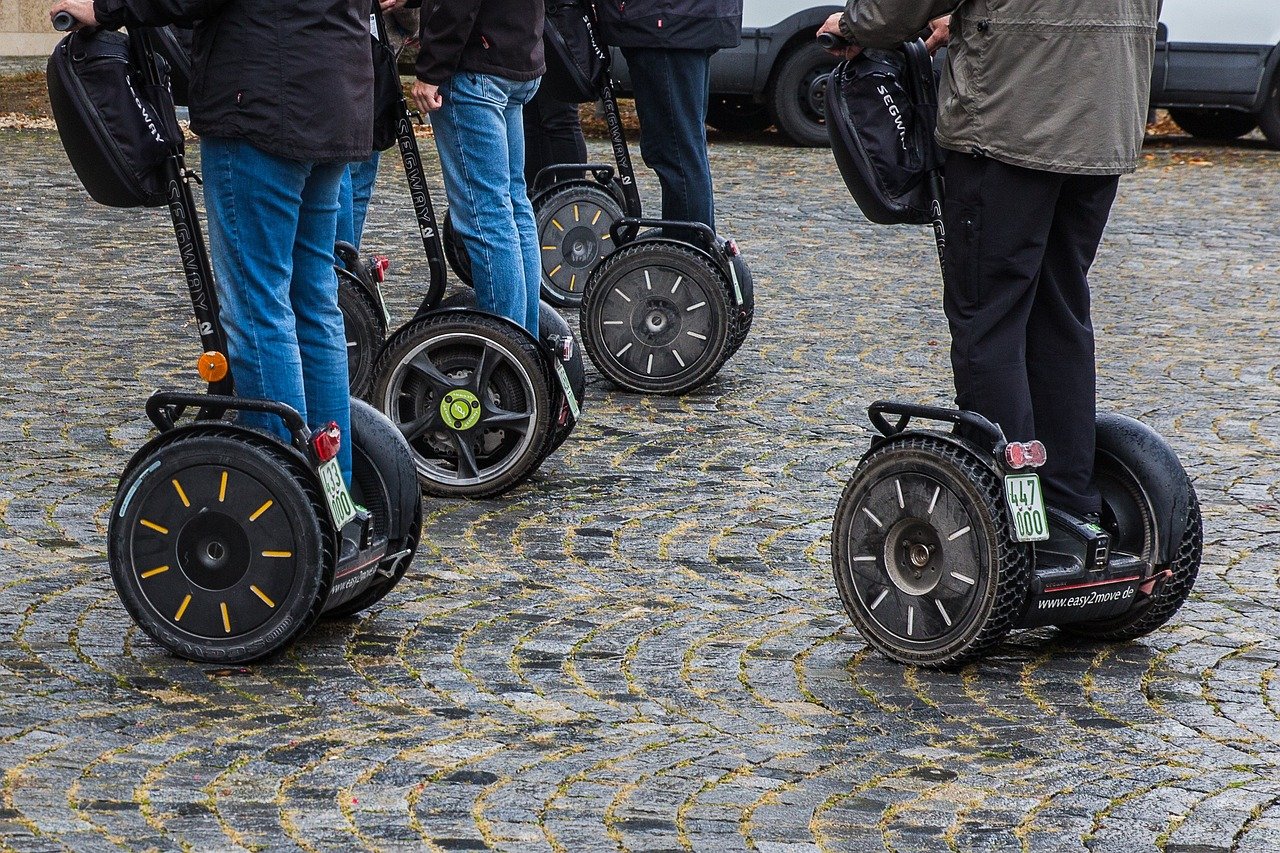Which Is More Suitable For My Daily Commute: An Electric Scooter Or A Bicycle?
If you’re trying to decide between an electric scooter or a bicycle for your daily commute, you’re not alone! Many people are considering these options because they’re convenient and eco-friendly. Both have their advantages and disadvantages, so let’s take a closer look to help you make the best choice.

Cost
Initial Cost
When deciding between an electric scooter and a bicycle for your daily commute, one important factor to consider is the initial cost. Electric scooters generally tend to be more expensive than bicycles. While there are different models and brands available in the market, electric scooters usually require a higher upfront investment compared to bicycles.
Maintenance Cost
In terms of maintenance cost, bicycles have an advantage over electric scooters. Bicycles require minimal maintenance, such as occasional tire inflation, brake adjustments, and chain lubrication. On the other hand, electric scooters require more regular maintenance, including battery charging and replacement, brake pad replacements, and occasional tire changes. These additional maintenance requirements can add up and increase the overall cost of owning an electric scooter compared to a bicycle.
Fuel or Charging Cost
When it comes to fuel or charging cost, electric scooters have the upper hand. Electric scooters are powered by electricity, which is generally cheaper than gasoline used by cars. Charging an electric scooter is much more affordable compared to constantly buying gasoline for a car or a scooter that runs on gasoline. This makes electric scooters a cost-effective option for your daily commute.
Speed and Efficiency
Maximum Speed
When it comes to maximum speed, electric scooters have an advantage over bicycles. Most electric scooters have a higher maximum speed compared to bicycles. Electric scooters can usually reach speeds of 15 to 20 miles per hour, while bicycles generally have a lower maximum speed, depending on the rider’s physical capabilities.
Average Speed
In terms of average speed, electric scooters can maintain a relatively constant speed. Once you set the speed on an electric scooter, you can maintain that speed without much effort. On the other hand, the average speed of a bicycle depends on the rider’s pedaling abilities and physical condition. Electric scooters provide a more consistent and effortless riding experience in terms of average speed.
Efficiency
When it comes to efficiency, bicycles are the clear winners. Bicycles do not require any external power source to move, as they rely solely on human power. This makes bicycles highly efficient and environmentally friendly. Electric scooters, on the other hand, require electric power from a battery to operate. While electric scooters are still more efficient than cars, bicycles are the most energy-efficient mode of transportation.
Distance
Travel Range
When considering the travel range, electric scooters have an advantage over bicycles. Electric scooters can typically cover longer distances compared to bicycles. Most electric scooters have a range of around 15-30 miles on a single charge, depending on the model and battery capacity. Bicycles, on the other hand, rely solely on the rider’s physical endurance, making them more suitable for shorter distances.
Battery Life
Battery life is an essential factor to consider when choosing between an electric scooter and a bicycle. Electric scooters run on batteries, and their battery life varies depending on the model and usage. On average, electric scooters can last anywhere from 2-5 years, depending on how well the battery is maintained and charged. Bicycles, on the other hand, do not rely on batteries, making their lifespan longer compared to electric scooters.
Physical Endurance
Physical endurance is a key consideration when comparing electric scooters and bicycles. Electric scooters require minimal physical effort, making them a suitable option for those with limited physical endurance or individuals who want to reach their destination without breaking a sweat. Bicycles, on the other hand, require physical exertion from the rider. They offer great opportunities for exercise and improving cardiovascular health but might not be suitable for individuals with limited physical endurance.
Terrain and Road Conditions
Flat Terrain
Both electric scooters and bicycles are suitable for commuting on flat terrain. Flat terrain requires less effort and energy, making it easier to ride both electric scooters and bicycles. You can choose either option based on personal preferences and other factors discussed in this article.
Hilly Terrain
When it comes to hilly terrain, electric scooters are more suitable than bicycles. Electric scooters have motors that provide extra power, allowing riders to navigate uphill climbs with greater ease. Bicycles, on the other hand, require the rider to exert more physical effort when riding uphill, which can be challenging and tiring, especially for longer commutes.
Potholes and Bumpy Roads
Both electric scooters and bicycles can handle potholes and bumpy roads to some extent. However, electric scooters typically have larger wheels and better suspension systems than bicycles, making them better equipped to absorb shocks and vibrations caused by uneven surfaces. Bicycles may require cautious maneuvering to navigate potholes and bumpy roads, but their smaller wheels make them more nimble in tight spaces.

Speed Limits and Regulations
Local Laws
Before deciding between an electric scooter and a bicycle, it is important to familiarize yourself with local laws and regulations. Different areas have different rules regarding the use of electric scooters and bicycles on public roads and sidewalks. Some places may prohibit electric scooter usage altogether or require the rider to have a valid driver’s license. Understanding and abiding by these laws is crucial to ensure a safe and legal commute.
Speed Limit Enforcement
Both electric scooters and bicycles must adhere to speed limits enforced by local authorities. It is essential to ride responsibly and abide by the designated speed limits to ensure your safety and the safety of others. Electric scooters often come with speed limit restrictions, while bicycles rely on the rider’s judgment and personal speed control to adhere to speed limits.
Parking and Storage
Available Parking Spaces
Finding suitable parking spaces is an important consideration when choosing between an electric scooter and a bicycle. Electric scooters are generally more compact and easier to park compared to bicycles. Many cities offer designated parking spaces for electric scooters, making them a convenient option for urban commuters. Bicycles, on the other hand, require larger parking spaces and may not have the same level of designated parking availability.
Security and Theft
Both electric scooters and bicycles can be targets for theft if not properly secured. It is important to invest in good quality locks and take necessary precautions to prevent theft. Bicycles can be locked to fixed structures such as bike racks, while electric scooters can be folded and carried indoors, minimizing the risk of theft. Be mindful of the security aspect and take appropriate measures to protect your scooter or bicycle.

Weather Conditions
Rainy Days
When it comes to riding on rainy days, electric scooters have an advantage over bicycles. Electric scooters often come with waterproofing features, such as sealed electrical components, to protect them from rain and moisture. Bicycles, on the other hand, can be more susceptible to water damage and may require additional maintenance or protective measures during rainy weather.
Hot Summers
Both electric scooters and bicycles can be used during hot summers. However, electric scooters may provide a more comfortable ride as they are equipped with electric fans or cooling features. Bicycles allow for more air circulation and the ability to cool down by increasing the rider’s speed. It is important to stay hydrated and take necessary precautions against excessive heat exposure while riding during hot summers, regardless of the mode of transportation.
Snowy and Icy Conditions
Neither electric scooters nor bicycles are suitable for riding on snowy or icy conditions. Both options can be dangerous and pose a risk to the rider’s safety. It is advisable to avoid riding during such weather conditions and explore alternative modes of transportation.
Health Benefits
Physical Activity
When comparing electric scooters and bicycles in terms of health benefits, bicycles come out on top. Bicycling is a form of physical activity that provides exercise for the entire body, including the heart, legs, and core muscles. It helps improve cardiovascular fitness, muscle strength, and overall endurance. Electric scooters, while requiring less physical effort, do not provide the same level of exercise as bicycles.
Cardiovascular Health
Bicycling is known to improve cardiovascular health by increasing heart rate and promoting blood circulation. Regular cycling can contribute to a healthier heart, reduced risk of heart diseases, and improved overall cardiovascular fitness. Electric scooters, while not providing the same level of cardiovascular exercise, still offer the benefits of being an active mode of transportation compared to cars or public transport.
Muscle Strengthening
Bicycling helps strengthen various muscle groups, including leg muscles, core muscles, and glutes. It provides a low-impact workout that can help improve muscle endurance and tone. Riding an electric scooter requires minimal leg muscle engagement and does not provide the same level of muscle strengthening as bicycling.
Convenience and Portability
Foldability
When it comes to convenience and portability, electric scooters have an advantage due to their foldability feature. Electric scooters can be easily folded and carried indoors or stored in tight spaces like apartments or offices. Bicycles, on the other hand, are generally larger and less portable. They require more space for storage and may not be as convenient to carry or transport.
Weight
Electric scooters tend to be heavier than bicycles due to the additional components such as the motor and battery. This can make electric scooters more challenging to carry or maneuver compared to bicycles, especially when there is a need to navigate stairs or tight spaces. Bicycles, while also having some weight, are generally lighter and easier to carry or transport.
Ease of Carrying
Electric scooters are designed to be compact and easily carried when folded. They often come with built-in handles or a carrying mechanism, making them more convenient to transport. In contrast, bicycles can be more cumbersome to carry, especially if they do not have folding features or carrying accessories. Overall, electric scooters offer greater convenience and ease of carrying.
Environmental Impact
Carbon Emissions
One of the significant environmental advantages of both electric scooters and bicycles is their minimal carbon emissions compared to cars or motorcycles. Electric scooters produce zero tailpipe emissions, as they run on electricity from rechargeable batteries. Bicycles, being propelled solely by human power, are entirely emission-free. Both options contribute positively to reducing air pollution and have a lower carbon footprint compared to traditional motor vehicles.
Sustainable Transportation
Both electric scooters and bicycles offer sustainable transportation options. By choosing these modes of transportation for your daily commute, you contribute to reducing dependence on fossil fuels, lowering greenhouse gas emissions, and promoting a greener environment. Additionally, bicycles have the added benefit of being entirely self-sustaining, relying only on human power and not requiring any external energy source whatsoever.
Choosing between an electric scooter and a bicycle for your daily commute depends on various factors such as cost, speed, distance, road conditions, regulations, convenience, health benefits, and environmental impact. Consider your own preferences, needs, and the specific conditions of your commute to make an informed decision. Both electric scooters and bicycles provide unique advantages, and it ultimately comes down to finding the option that best suits your individual requirements and priorities.
